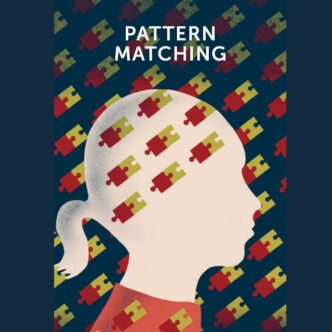How to use your Pattern Matching resource to stay well
Jo Flack, Trainer of The Mental Health Toolkit by Suffolk Mind, explains how to use your Pattern Matching resource to stay well.
We all have physical and emotional needs that we must try to meet to stay healthy and well. And, happily, along with these innate needs we have been given a set of innate resources that can both guide us and enable us to get our needs well met.
One of these is the ability to develop long term memory patterns to help us understand the world around us – our ‘pattern matching’ resource. The more things we experience the more patterns our brain has to draw upon.
As with all our innate resources, we are born with this ability but we need to build on it and develop it. For example, babies are born with the suckling reflex; they have the in-built pattern that sucking equals food. However, when babies are born they will suckle on anything and everything and the pattern is only complete when a baby suckles on a nipple or bottle teat and learns that this is the way that can meet their need for nutrition.
Some pattern matches are generic, like the example above, while others are unique to each individual; dependent on each person’s learning and experience. For example when I hear a certain song I have a pattern match that takes me back into my memory to that first ever romantic dance at the school disco, but other people will not make that same match. Some pattern matches are so familiar and deeply ingrained, such as going into ‘autopilot’ when driving home from work, that the pattern match is fairly exact. Other, less familiar situations will leave our brains finding an approximate pattern to help us make sense of a situation, when we think “oh that’s a bit like…”
Pattern matching is a resource that is crucial to wellbeing. It is key to learning and to expanding our understanding. However, sometimes we can develop harmful patterns that narrow our perspective and these can give rise to mental health difficulties.
For example… time for some honesty here… I sometimes have a glass of wine if I’m feeling a bit stressed. Now, this in itself isn’t necessarily a problem. However, if every time I feel a need to calm down, my only go-to is a glass of wine, then before I know it my brain will begin to pattern match calming down with a glass of wine and this could lead to a dependency on alcohol to relax and prevent me from developing more effective measures to manage my stress.
So how, in the current climate of the pandemic, can we help ourselves to use our pattern matching resource to promote, rather than potentially harm, our emotional wellbeing?
- Avoid developing unhealthy patterns, such as going to bed worrying each night, or reaching for that glass of wine when we need to de-stress. Instead, find patterns that work for us; whether that’s making a soothing playlist to listen to or creating a daily routine that becomes a positive pattern to help us manage these challenging days.
- Seek out patterns that can expand our perspective and help us think more clearly. For example, learning how to meet our emotional needs at this challenging time.
- Use the patterns we have all individually developed to understand and support other people by being empathetic and tolerant to those around us.
- Help our brains to pattern match well by using healthy relaxation techniques to keep us calm and clear-thinking. Seek out the patterns that work for us – for example, make a soothing playlist to listen to instead of watching the news endlessly; or create a good daily routine that becomes a positive pattern.
- And finally, keep our minds healthy by staying curious about new or unfamiliar things so we are continually learning and making new patterns to draw on for the future.















